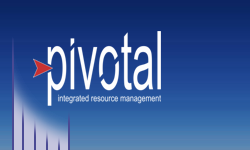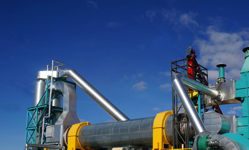Integrated Resource Management
If you're managing or planning how to deal with waste, you need to
consider Integrated Resource Management. The best way to explain
this is by example: Pivotal prepared an IRM Plan for
Esquimalt, BC, a community of
19,000, covering MSW, kitchen, yard & garden wastes. It is
expected to:
▪ achieve over 90%
landfill diversion;
▪ exceed the community's corporate GHG reduction commitments;
▪ reduce taxes, net of all
construction and operating costs;
▪ generate a sterile "compost"
that;
▪ sequesters carbon at no
extra cost;
▪ generate clean energy and;
▪ attached buildings may
exceed Net Zero.
The Plan received over 85% public support,
was unanimously approved by expert review committees and Council and is
being implemented. The main plant will be on a 1 acre site near the town
centre, adjacent to housing and businesses who support the
project, which will be guaranteed. A conventional waste management plan
undertaken in parallel did not identify these benefits or potential.
IRM is a justifiable approach even if the only driving reasons are
financial, but especially if you have to consider the environment.
That's because it's the best way to maximize the "5R's" of reuse and
recycling, Net Zero, the circular economy, moving towards zero waste and
more.
The heart of IRM is that it integrates and links financial,
environmental, resource and energy life cycles, costs and revenues.
The result is a transparent assessment with full comparison of
systems, approaches, technologies and more. This makes it
completely accountable to taxpayers and shareholders and is the best, if not the only way, to
plan resilient, maximized solutions, because IRM integrates seamlessly
with traditional waste planning and existing systems.
See the 9 minute video
developed for the above example community, to start to understand why
IRM is both useful and important. In summary:
|
▪ |
For business IRM reduces cost and risk, maximizing profit and adding to the
bottom line while demonstrating environmental leadership, faster and
at less cost and risk; |
|
▪ |
For communities, IRM creates a justifiable and resilient long
term plan that's better for both the environment and
cheaper for taxpayers. |
For more about IRM please contact Pivotal.
IRM is as much a
philosophy as a process, because in nature there is no waste, just
resources.
Waste not, want not. The original driver behind IRM was to be consistent with the UN's
Brundtland
Commission definition of
sustainable development. IRM was reviewed by Dr. Charles McNeill, Manager of the United Nations Development
Programme's Environmental Program Team, who concluded:
"I conclude that this IRM plan is conceptually sound and
on the right track, and if implemented it would likely provide a
model of great value to countless municipalities throughout the
world."
Gothenburg, Sweden implemented IRM. See the
short interview with Mr Kaj Anderson, Manager of Gothenburg's combined
water and waste management division explaining how they did this.
Gothenburg subsequently implemented an Advanced Gasification system
using a fluidized bed reactor. For more detail see the
summary, read more in the
library
or contact Pivotal.
|


